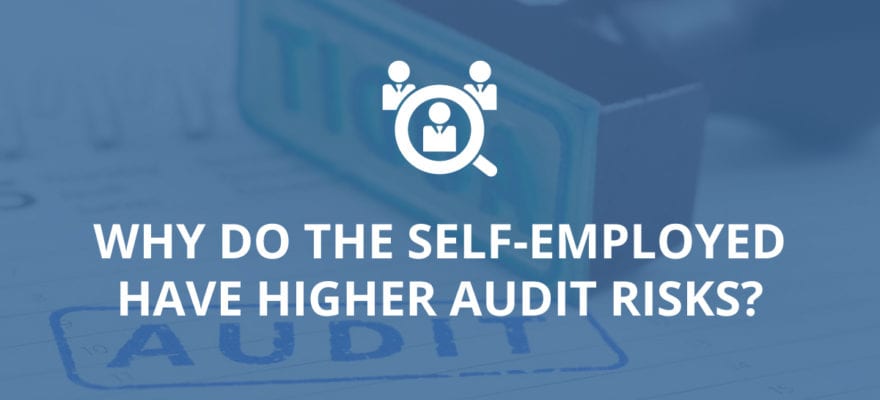Yes, it’s true. If you forgo traditional employment in favor of the American Dream, you have a higher chance of being noticed by Uncle Sam- and not in a good way.
The Internal Revenue Service has many agendas, but a top one is collecting unpaid taxes from self-employed people. The IRS believes that this group is more likely to underreport income and overclaim expenses, so they have a greater chance of being audited than employees. For example, if you report over $10,000,000 in adjusted gross income, your audit risk is nearly 35%.
Is the IRS justified in paying closer attention to freelance coders and artists than corporations and tycoons? Below is an overview of the reasons why your audit risk goes up the moment you start working for yourself.
The Statistics Suggest Noncompliance
In April 2018, CPA Practice Advisor ran an article suggesting that 32% of self-employed workers admit to underreporting their income. Citing the results of a survey by Quickbooks Self-Employed, it reported that:
- 36% admitted to not paying taxes at all. Of this total, 9% didn’t give a reason except that they “just didn’t pay” while 17% said they didn’t make enough money to owe tax and 10% claimed losses that exceeded their profits.
- 32% of those who were audited made tax errors.
- 6% of self-employed individuals don’t report any of their income.
- 10% of full-time self-employed workers only reported 50% or less of their income.
There Are More Opportunities for Noncompliance
Regular employees have little to no opportunity to misreport their income, as employers withhold taxes from their pay. It’s easier for self-employed people, especially those who run a cash-based business, to evade their tax obligations.
If you pay a local handyman to fix your leaking window air conditioner, you probably don’t give them a 1099 form along with the cash or check. The onus is on the handyman to report the income, but the IRS believes that he probably won’t do it. This is why your audit risk goes up if you run a cash-intensive business, such as hair salon, bar, or taxi, or you are part of the ‘gig’ economy, which includes Uber drivers.
Deductions Can Be Abused
One of the advantages of being self-employed is that any tools or assets you use for business purposes can be written off. This includes your car and even part of your rent or mortgage if you maintain a home office. But despite the tax break that the self-employed get under the new law, the IRS knows from experience that some of these workers will still claim excessive deductions.
If you are self-employed, always remember that audits are a real possibility and if one does occur, the IRS can find unclaimed income by checking bank records. They will also investigate deductions that appear excessive, so honesty is always the best policy.
Have You Been Selected for an Audit?
If the IRS sends you a letter indicating that you have been selected for an audit, it’s normal to feel alarmed, even if you’re reasonably sure that you have filed your taxes directly. Self-employment tax returns, especially if they aren’t professionally prepared, can be complicated and you may have made mistakes. It’s also possible that the IRS can take a legitimate gift or reimbursement, mistake it for income, and present you with a tax bill that you don’t really owe.
An IRS audit attorney can help you prevent a catastrophic outcome by dealing with the IRS on your behalf. They will also review your invoices, receipts, and other documents to ensure that each one correctly reflects the transaction. If you know that there are bigger issues with your tax return, such as improper deductions and unreported income, experienced legal counsel is definitely recommended.
Contact a New Jersey Tax Debt Attorney
If you are self-employed, receiving an audit letter or notice of proposed adjustment from the IRS is especially daunting. At Paladini Law, we will help you navigate the audit or review the accuracy of the assessment, look for ways to minimize any tax liability and propose a payment plan for the remaining balance. Attorney Brad Paladini has a Master of Laws in Taxation from a highly-rated tax law program and has obtained a positive outcome for many audited clients, so please contact us or call 201-381-4472.



